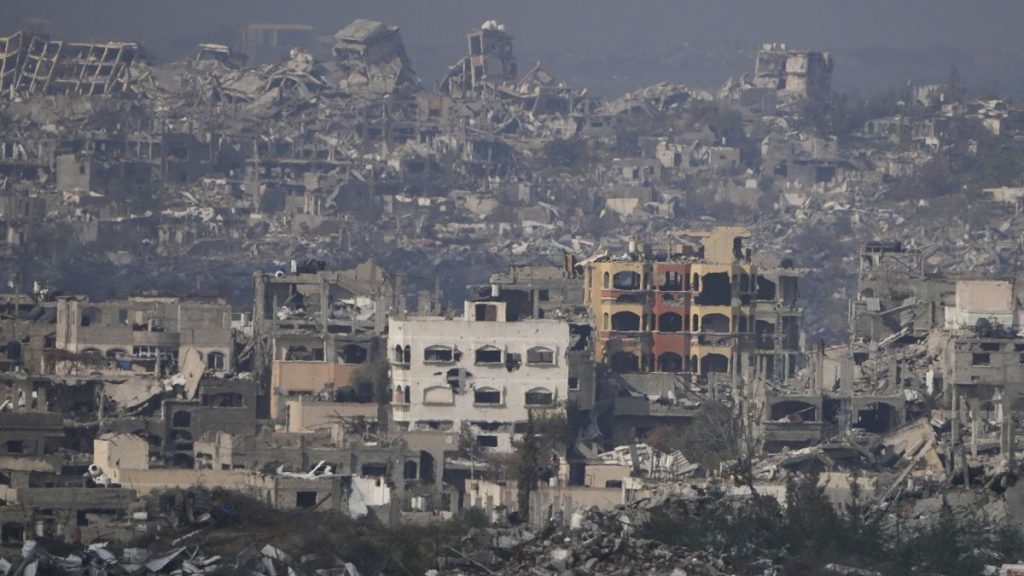Summarize this content to 2000 words in 6 paragraphs
Brussels has had a limited role in brokering a fragile Middle East peace deal – but hopes are high it can help improve Gaza’s grim humanitarian situation.
The EU has warmly welcomed the prospect of a truce in the Israel-Gaza war that has raged for 15 months – and today pledged €120 million in aid as the region faces up to its terrible legacy.Brussels played only a limited role in forging the peace deal, but hopes are high it can play a stronger role in the region’s future – including via political and logistical support. “The ceasefire and hostage release agreement offers hope the region desperately needed,” European Commission President Ursula von der Leyen said in a post on X, but added that Gaza’s “humanitarian situation remains grim.” The deal was announced on Wednesday by US President Joe Biden and key mediator Qatar, but its fate has been thrown into doubt after Israel havered over endorsing it. Israeli Prime Minister Benjamin Netanyahu blamed unnamed last-minute demands made by Hamas, which governs Gaza, though members of his own Cabinet have also been publicly sceptical about the deal. The EU aid package pledged today includes assistance for food, healthcare and sanitation, and brings the total support to the region since 2023 to €450 million, with 3,800 tonnes of aid delivered by air. “The European Union is ready to support the implementation of the ceasefire,” Commission spokesperson Anouar El Anouni told reporters later on Thursday. A redeployment of a mission to the Rafah crossing, a key border checkpoint with Egypt, could “enable EU to better advise and assist the Palestinian border authorities,” assuming they and Israel consented, he added. News of the deal has been welcomed by EU leaders, with top diplomat Kaja Kallas describing it as a “major, positive breakthrough,” while European Council President Antonio Costa reiterated the EU’s commitment to a two-state solution – a long-term plan for peace that many fear the war has left in tatters. Iratxe García Pérez, who leads the European Parliament’s centre-left socialist grouping, called for the release of all remaining Israeli hostages held by Hamas, and pledged to travel to the region soon. In reality, the EU has had little to do with a deal brokered by the US, Egypt and Qatar – and whose finalisation may have been hastened by the imminent arrival of the much more aggressive policy of US President Donald Trump. Brussels “has been on the sidelines” of negotiations, expert Hugh Lovatt told Euronews’ Radio Schuman podcast in an interview recorded on Wednesday. “Where the EU does have an important role to play, should it be able to step up, is in terms of helping to formulate and shape what comes after the ceasefire … who will govern Gaza, who will maintain and provide security, and how to relaunch a broader diplomatic track to be able to advance an end to the Israeli-Palestinian conflict and Palestinian self-determination,” said Lovatt, who is a senior fellow at think tank the European Council on Foreign Relations. “These are huge issues, of course, and I think the EU is well-placed to help,” he added.


